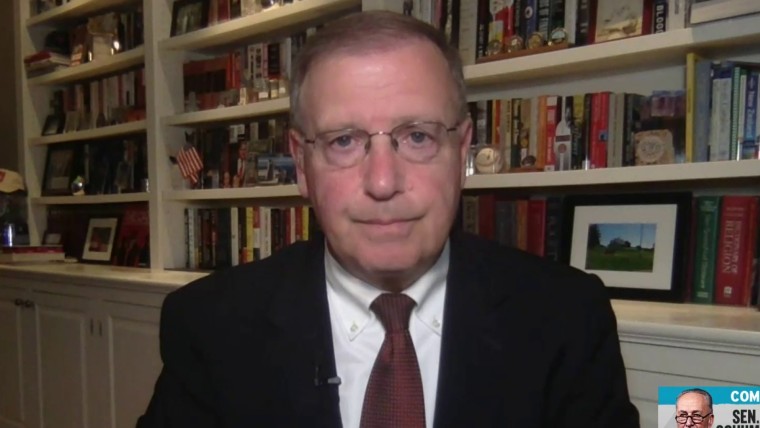There was never any doubt that Sen. Ron Johnson would come up with some kind of defense for Donald Trump improperly taking classified materials to his glorified country club and then refusing to give them back. It was more a question of how the Wisconsin Republican would support the former president, not whether.
With this in mind, WISN in Milwaukee asked the senator about last week’s developments, and Johnson began by saying he’s against “raiding a former president’s house.” That wasn’t a good start: There was no “raid” and Mar-a-Lago is a business, not a “house.”
But then the controversial GOP senator went a little further.
“First of all, I think Mar-a-Lago is a pretty safe place. It has Secret Service protection, sounds like these documents might have been in a safe. So no, I’m not overly concerned about some top-secret information getting leaked out,” Johnson said.
As part of the same comments, the Republican added that while he’s concerned about the security of classified documents in general, he’s also satisfied that Mar-a-Lago is “a secure location.”
So, a couple of things.
First, as a legal matter, the condition of security protocols at the Trump-owned property is not the central question. The former president allegedly took highly sensitive national security secrets that didn’t belong to him, and when asked to return them, he didn’t. Trump could’ve hired armed guards to stand over the materials 24 hours a day, surrounded by sharks with lasers attached to their heads, and that wouldn’t necessarily affect the underlying controversy.
Second, for Johnson — the former chairman of the Senate Homeland Security committee — to see Mar-a-Lago as “a pretty safe place” and “a secure location” is quite odd.
In 2017, for example, just months into Trump’s presidency, Politico reported, “President Donald Trump relishes the comforts of his Mar-a-Lago estate for repeated weekends away from Washington, but former Secret Service and intelligence officials say the resort is a security nightmare vulnerable to both casual and professional spies.”
A few months later, ProPublica tested security measures at the private club and marveled at how vulnerable it was. The piece quoted one cybersecurity expert who said hackers could use Mar-a-Lago’s network to remotely turn on the microphones and cameras of devices connected to the network. “What you’re describing is typical hotel security,” he said, but “it’s pretty concerning” that an attacker could listen to sensitive national security conversations.
Two years later, a Chinese citizen was allowed to enter Mar-a-Lago because part of her name matched that of a member of the club. As Rachel noted on the show, the woman was carrying four cell phones, an external hard drive, a laptop, and a thumb drive that the Secret Service discovered was infected with some sort of malware — all while the sitting president was on the premises.
This is the venue where Trump kept highly classified national security secrets that he wasn’t supposed to have.
After learning about this, Johnson — just to reiterate, a man who chaired the Senate Homeland Security Committee for six years, overseeing the Department of Homeland Security and the U.S. Secret Service — concluded that the possible felonies just aren’t that important. After all, he said, the golf club is “a pretty safe place” and “a secure location.”
A quick follow-up question for the senator: Why exactly do you think this?

